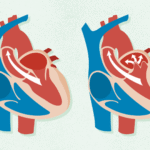Eating probiotic-rich foods and taking probiotic supplements can help populate your gut with beneficial bacteria, says Sarah Pflugradt, PhD, RDN, a registered dietitian and adjunct professor of health communication at American University in Washington, DC. “The goal is to have a microbiome that is not just full of good bacteria, but full of different types of good bacteria — often referred to as gut diversity,” she says.
To reap these benefits, you may be interested in a quick fix such as a probiotic supplement, but it’s important to understand that what we know about them is limited.
“We know that probiotic bacteria are beneficial for health, but research on why and how they impact health is still emerging,” Dr. Pflugradt says. “I wouldn’t necessarily say their role in specific conditions is theoretical, but it needs to be studied more.”
And that’s especially true when it comes to supplements. Even though the research on their benefits is promising, probiotic supplements are not widely recommended yet, Pflugradt says. You’re much better off getting probiotics from food, which offer a wider variety of probiotic bacteria, she says. Supplements, on the other hand, typically only contain one or two specific strains, which don’t have as much of an effect on gut diversity.
Here’s a look at the evidence we have to date.
May Improve Digestive Health
Probiotics may also help with inflammatory bowel disease (IBD), a group of autoimmune diseases marked by chronic inflammation in the gut that leads to symptoms such as abdominal pain, nausea, fatigue, chronic diarrhea, and weight loss.
If you have one of these conditions and are curious about probiotics, speak with your care team. “It’s always a good idea to consult with your primary care physician or a registered dietitian if you want to take a probiotic, to ensure it’s right with your current medical conditions and medication, especially if you are immunocompromised,” Pflugradt says.
Also, one study found that taking probiotic supplements (namely lactobacillus) while pregnant may help reduce nausea, vomiting, and constipation. However, pregnant women should speak with their healthcare provider to make sure probiotics are the best option for them.
May Help Reduce Inflammation
Probiotic supplements seem to have an anti-inflammatory effect in the body, although more research is needed on the effects of specific strains and dosages.
“Probiotic bacteria in the gut produce substances called short-chain fatty acids, and research has pinpointed these as the real heroes of the gut,” Plfugradt says. They help reduce inflammation in the body, and this may benefit many conditions that stem from chronic inflammation, from type 2 diabetes to arthritis.
May Offer Immune System Support
You may think of your immune system and your gut as two separate entities, but they’re actually intricately related.
“Probiotics are meant to improve the health of the microbiome,” Pflugradt says. “When these good bacteria populate the gut, they don’t allow harmful bacteria to grow, improving the immune response.”
One research review found that consuming probiotics may improve immune function in two important ways: by stimulating the production of cytokines, the proteins that control the growth and activity of other parts of the immune system, as well as by stimulating cells that produce immunoglobulin-A, an antibody that helps your body fight off pathogens.
At the same time, there is a lot we still need to understand about how different strains of probiotics affect the immune system in different people.
May Help Reduce Cancer Risk
Because more and more research has linked the gut microbiome to the immune system, scientists are studying how probiotics’ specific effect on immunity may potentially help in the prevention and treatment of cancer.
Additionally, one observational study that spanned 20 years and included nearly 37,000 people found that low and moderate intake of probiotics from food was linked to a reduced risk of death from cancer. It is important to keep in mind here, though, that observational studies like this one can only draw connections (in this case, between eating probiotic-rich foods and a lower risk of cancer), but they don’t control for other factors (such as other lifestyle habits) that may play a role, so they can’t prove cause and effect.
The bottom line here is that the potential anticancer perks require a lot more study, including large-scale clinical trials in humans to help us better understand the role of probiotic strains and the dosages that might yield these effects.
“There are currently not any recommendations for using probiotic supplements for cancer prevention,” Pflugradt says. In the meantime, it is known that consuming probiotic-rich foods is part of a healthy diet, she adds. “From an overall health perspective, regularly eating probiotic-rich foods can help with immunity and fighting inflammation.”
May Help With the Prevention of Allergies
Probiotics seem to influence an entire immunological network in the body, and these effects may start even before you’re born. Some research suggests that supplementation with certain probiotics during pregnancy may reduce the child’s risk of developing allergic conditions such as eczema, especially if the child is at high risk of developing allergies.
Results have been inconsistent in this area, though, so more large studies need to be done to better understand the mechanisms and the exact role that probiotics play.
May Lower the Risk of Severe Outcomes From COVID-19
A systematic review and meta-analysis looked at studies done on the effects of probiotics on the prevention and treatment of COVID-19 and found that while probiotics don’t seem to prevent the condition, they are linked to a quicker recovery time and a decreased risk of dying when used during treatment.
The review included many different forms of probiotics, though, so we don’t know which strains or regimens are most effective.
May Lead to Better Oral Health
Probiotics may benefit the digestive tract from beginning to end, and the perks may start in your mouth.
A small amount of research has found that probiotic supplements, specifically lactobacilli, can help balance the pH in your mouth, preventing bacteria from forming into the plaque that leads to cavities and gum disease.
In addition to a balanced pH level in the mouth, practicing good oral hygiene, avoiding foods and drinks with added sugar as much as possible, and seeing your dentist regularly can all help you maintain good oral health.
May Reduce the Risk of Food Allergies
Probiotics may also help prevent food allergies, though more research is needed.
A research review noted that probiotics’ ability to help balance the gut microbiome and support the immune system may help alleviate food allergies. However, the authors note that much of the research in this area has been done only in animals and that food allergies in humans are complicated and affected by many factors, including environment, genetics, and diet. With that in mind, more research is needed to better understand how probiotics affect allergies.
Read the full article here




